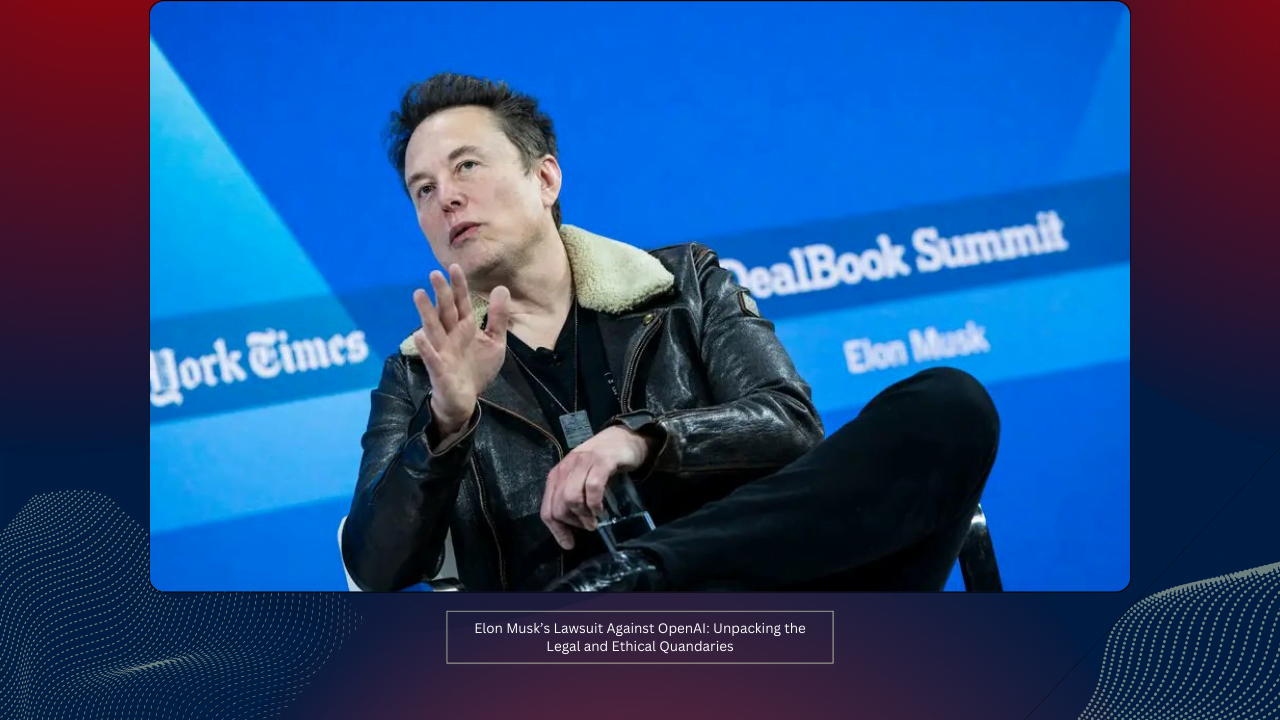
Elon Musk’s Lawsuit Against OpenAI: Unpacking the Legal and Ethical Quandaries
Elon Musk’s recent lawsuit against OpenAI and its CEO, Sam Altman, has stirred significant interest and debate across various sectors, from Silicon Valley to Wall Street to Washington. The case, which revolves around allegations of OpenAI prioritizing profits over its mission, raises profound legal and ethical questions that lack clear precedent, making it a subject of fascination among legal experts.
Background of the Lawsuit
Elon Musk, a prominent figure in the tech industry, has taken legal action against OpenAI, an advanced AI company, and its CEO, Sam Altman. Musk’s lawsuit alleges that OpenAI, initially established as a nonprofit organization, violated its contractual obligations by prioritizing commercial interests over its stated mission of serving the public good. This legal dispute has captured widespread attention due to its high-profile nature and the involvement of major players in the technology and business realms.
Key Legal Questions Raised
- Contractual Obligations: The lawsuit centers on whether OpenAI breached its contract to operate in the public interest. Musk’s legal team contends that the company’s actions diverged from its founding purpose of benefiting humanity, leading to a violation of its duties.
- Profit Motive vs. Mission: The case highlights the tension between profitability and altruism in the tech industry. It prompts examination of whether companies can prioritize financial gains while staying true to their ethical and moral objectives.
- Technology Access and Licensing: Musk’s lawyers are seeking to compel OpenAI to open its technology to others and cease exclusive licensing agreements with Microsoft. This aspect of the lawsuit raises questions about intellectual property rights and the obligations of tech companies to share innovations for the greater benefit of society.
Implications and Uncertainties
Despite the high stakes involved, the outcome of the lawsuit remains uncertain, with no clear definition of “winning.” Musk’s personal motivations and philosophical differences with OpenAI add complexity to the case, making it challenging to determine the desired resolution.
Conclusion
Elon Musk’s legal battle against OpenAI underscores the intricate intersection of technology, ethics, and business interests. As the case unfolds, it brings to light broader questions about corporate responsibility, the role of AI in society, and the balance between profit-making and social impact. Whether this lawsuit sets a precedent for future disputes in the tech industry remains to be seen, but its significance in shaping the trajectory of AI development and governance cannot be overlooked.

